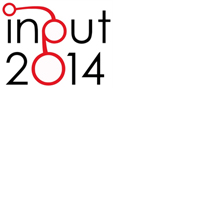Zero Emission Mobility Systems in Cities. Inductive Recharge System Planning in Urban Areas
DOI:
https://doi.org/10.6092/1970-9870/2493Keywords:
Inductive recharge systems, Electric vehicles, Electric ways, BresciaAbstract
In the last few years, “Sustainable” and “Smart” mobility became concepts of fundamental importance and led national government to adopt programmes and measures aimed at reducing the carbon emissions of private and commercial vehicles. The final goal is to pursue the EU objectives of reducing the greenhouse gases emission in transportation sector. The progressive electrification of the circulating vehicles represents a possible solution to the air pollution relating problems. A recent innovative research field, which could significantly contribute to the diffusion of the electric vehicles, consists of the inductive recharge systems for electric vehicles. This technology could also bring to considerably environmental and logistic advantages, especially in urban areas. Starting from the analysis of the main ongoing experimentations of these innovative systems in the world, the present paper proposes a possible application of the inductive recharge technology to the public transport vehicles, through the presentation of the case study of Brescia.Downloads
References
Yuseong Gu, Daejeon (2011), Application of Shaped Magnetic Field In Resonance (SMFIR) Technology to Future Urban Transportation, I. S. Suh, Graduate School for Green Transportation, KAIST, Republic of Korea.
Bombardier eMobility Solutions: The Evolution of Urban Mobility, relazione di ottobre 2012, Railway Days, Bucharest.
Srdjan Lukic, Zelijko Pantic, (2013), “Cutting the Cord”, IEEE Electrification Magazine, 57-64.
N.P. Suh, D.H. Cho, and C.T. Rim, (2011), Design of On-Line Electric Vehicle (OLEV), Global Product Development, ed. A. Bernard, Springer.
N. P. Suh President, KAIST, Daehak-ro, Yuseong Gu, Daejeon (2011), Design of Wireless Electric Power Transfer Technology: Shaped Magnetic Field in Resonance (SMFIR), Republic of Korea.
Hai Jiang, Paul Brazis Jr., Mahmood Tabaddor, (2012), Safety Consideration of Wireless Charger For Electric Vehicles, Northbrook, IL, Usa.
Young Jae Jang, (2012), System Architecture and Mathematical Model of Public Transportation System Utilizing Wireless Charging Electric Vehicles, Industrial and System Engineering, KAIST, Daejeon, South Korea.
Young Dae Ko, Young Jae Jang (2013), “The Optimal System Design of the Online Electric Vehicle Utilizing Wireless Power Transmission Technology”, IEEE Transaction on Intelligent Transportation Systems, 14.
Seung Young Ahn, Yangbae Chun, Dong-Ho Cho, Joungho Kim (2011), “Wireless Power Transfer Technology in On-Line Electric Vehicle”, Journal of the Korean Institute of Electromagnetic Enginnering and Science, 11.

Downloads
Published
How to Cite
Issue
Section
License


